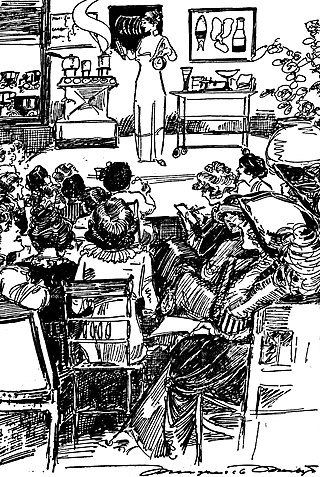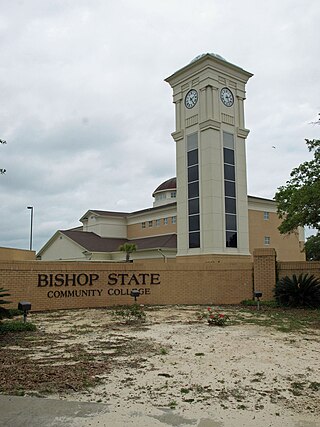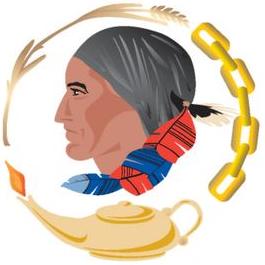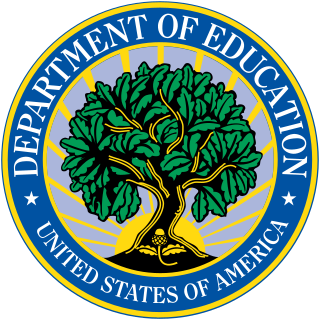
Upward Bound is a federally funded educational program within the United States. The program is one of a cluster of programs now referred to as TRiO, all of which owe their existence to the federal Economic Opportunity Act of 1964 and the Higher Education Act of 1965. Upward Bound programs are implemented and monitored by the United States Department of Education. The goal of Upward Bound is to provide certain categories of high school students better opportunities for attending college. The categories of greatest concern are those with low income, those with parents who did not attend college, and those living in rural areas. The program works through individual grants, each of which covers a restricted geographic area and provides services to approximately 59,000 students annually. The program focuses on academic and nonacademic resources and activities like visits to museums or tutoring for school work. Students are encouraged to be involved in Upward Bound for the entire academic year and a 6-week long summer program. Many students who are also granted access into the Upward Bound program are labeled as first generation college students, who are students that are the first in their family to attend college. This program is set in place for students who come from low income families as well as underrepresented schools and gives them an opportunity to excel in college.
Gifted education is a sort of education used for children who have been identified as gifted and talented.
The National Center for Education Statistics (NCES) is the part of the United States Department of Education's Institute of Education Sciences (IES) that collects, analyzes, and publishes statistics on education and public school district finance information in the United States. It also conducts international comparisons of education statistics and provides leadership in developing and promoting the use of standardized terminology and definitions for the collection of those statistics. NCES is a principal agency of the U.S. Federal Statistical System.
NAF is an industry-sponsored nonprofit with a national network of public-private partnerships that support career academies within traditional high schools. Each academy focuses on a theme that addresses the anticipated future needs of local industry and the community it serves in five major "college prep plus" fields of study that encourage and facilitate college preparation and technical training on career paths in finance, hospitality and tourism, information technology (IT), engineering, and health sciences. In 2019, the NFL awarded eight social justice organizations, including NAF, with a $2 million grant for "reduc[ing] barriers to opportunity."

Science, technology, engineering, and mathematics (STEM) is an umbrella term used to group together the distinct but related technical disciplines of science, technology, engineering, and mathematics. The term is typically used in the context of education policy or curriculum choices in schools. It has implications for workforce development, national security concerns, and immigration policy, with regard to admitting foreign students and tech workers.

The Higher Education Act of 1965 (HEA) was legislation signed into United States law on November 8, 1965, as part of President Lyndon Johnson's Great Society domestic agenda. Johnson chose Texas State University, his alma mater, as the signing site. The law was intended "to strengthen the educational resources of our colleges and universities and to provide financial assistance for students in postsecondary and higher education". It increased federal money given to universities, created scholarships, gave low-interest loans for students, and established a National Teachers Corps. The "financial assistance for students" is covered in Title IV of the HEA.

College of Alameda is a public community college in Alameda, California. It is part of the Peralta Community College District and was opened in 1968. Since 1970 the college has held classes on a 62-acre campus at the intersection of Webster Street and Ralph Appezzato Memorial Parkway in Alameda.
The Integrated Postsecondary Education Data System (IPEDS) is a system of interrelated surveys conducted annually by the National Center for Education Statistics (NCES), a part of the Institute for Education Sciences within the United States Department of Education. IPEDS consists of twelve interrelated survey components that are collected over three collection periods each year as described in the Data Collection and Dissemination Cycle. The completion of all IPEDS surveys is mandatory for all institutions that participate in, or are applicants for participation in, any federal financial assistance program authorized by Title IV of the Higher Education Act of 1965, as amended.
The America Creating Opportunities to Meaningfully Promote Excellence in Technology, Education, and Science Act of 2007, also known as the America COMPETES Act, was authored by Bart Gordon and signed into law on August 9, 2007, by President George W. Bush. The act aimed to invest in innovation through research and development and improve the competitiveness of the United States.

Vocational education in the United States varies from state to state. Vocational schools are post-secondary schools that teach the skills necessary to help students acquire jobs in specific industries. The majority of postsecondary career education is provided by proprietary (privately-owned) career institutions. About 30 percent of all credentials in teaching are provided by two-year community colleges, which also offer courses transferable to four-year universities. Other programs are offered through military teaching or government-operated adult education centers.

Bishop State Community College (BSCC) is a public, historically black community college with campuses and facilities throughout Mobile and Washington Counties in Alabama. The college was founded in Mobile, Alabama, in 1927, and is accredited by the Southern Association of Colleges and Schools Commission on Colleges. It offers more than 50 associate degree and certificate programs.

The Octorara Area School District is a small, rural–urban fringe, public school district serving Parkesburg, Atglen, Christiana, West Sadsbury Township, Sadsbury Township, West Fallowfield Township, Highland Township, and Londonderry Township in Pennsylvania.
The Ronald E. McNair Post-Baccalaureate Achievement Program, also referred to as the McNair Scholars Program, is a United States Department of Education initiative with a goal of increasing "attainment of PhD degrees by students from underrepresented segments of society," including first-generation low-income individuals and members from racial and ethnic groups historically underrepresented in graduate programs.

Originally created as the Bureau of the Education of the Handicapped, the Office of Special Education Programs (OSEP) is part of the U.S. Department of Education. OSEP provides leadership and support for professionals working with children with disabilities. Another critical role of OSEP is to protect the educational rights of children with disabilities from age three through twenty-one. OSEP is supervised by the Office of the Deputy Secretary of Education through the Office of Special Education and Rehabilitative Services (OSERS).

The DO-IT Center is based at the University of Washington (UW) in Seattle, Washington. Founded in 1992, DO-IT’s mission is to increase the successful participation of people with disabilities in postsecondary education and careers, in STEM fields and careers, and in computing fields and careers throughout the U.S. It directs the national AccessSTEM program, and co-directs the national AccessComputing Alliance focused on engaging people with disabilities in computing fields.

The Workforce Innovation and Opportunity Act (WIOA) is a United States public law that replaced the previous Workforce Investment Act of 1998 (WIA) as the primary federal workforce development legislation to bring about increased coordination among federal workforce development and related programs.
Education Development Center (EDC) is a global nonprofit organization to improve education, promote health, and expand economic opportunity across the United States and in more than 80 other countries. EDC headquarters are in Waltham, Massachusetts, and main offices in Washington, D.C., New York City, and Chicago. EDC has 1,400 employees worldwide.
First-generation college students in the United States are college students whose parents did not complete a baccalaureate degree. Although research has revealed that completion of a baccalaureate degree is significant in terms of upward socioeconomic mobility in the United States, a considerable body of research indicates that these students face significant systemic barriers to postsecondary education access, academic success once enrolled, and degree completion. Many of these obstacles result from systemic racial, cultural, social, and economic inequities.
Bridget Terry Long is the 12th Dean of the Harvard Graduate School of Education, and the Saris Professor of Education and Economics. She is an economist whose research focuses on college access and success. Long is a Faculty Research Associate at the National Bureau of Economic Research and a member of the National Academy of Education.
The federal government of the United States has limited authority to act on education, and education policy serves to support the education systems of state and local governments through funding and regulation of elementary, secondary, and post-secondary education. The Department of Education serves as the primary government organization responsible for enacting federal education policy in the United States.










